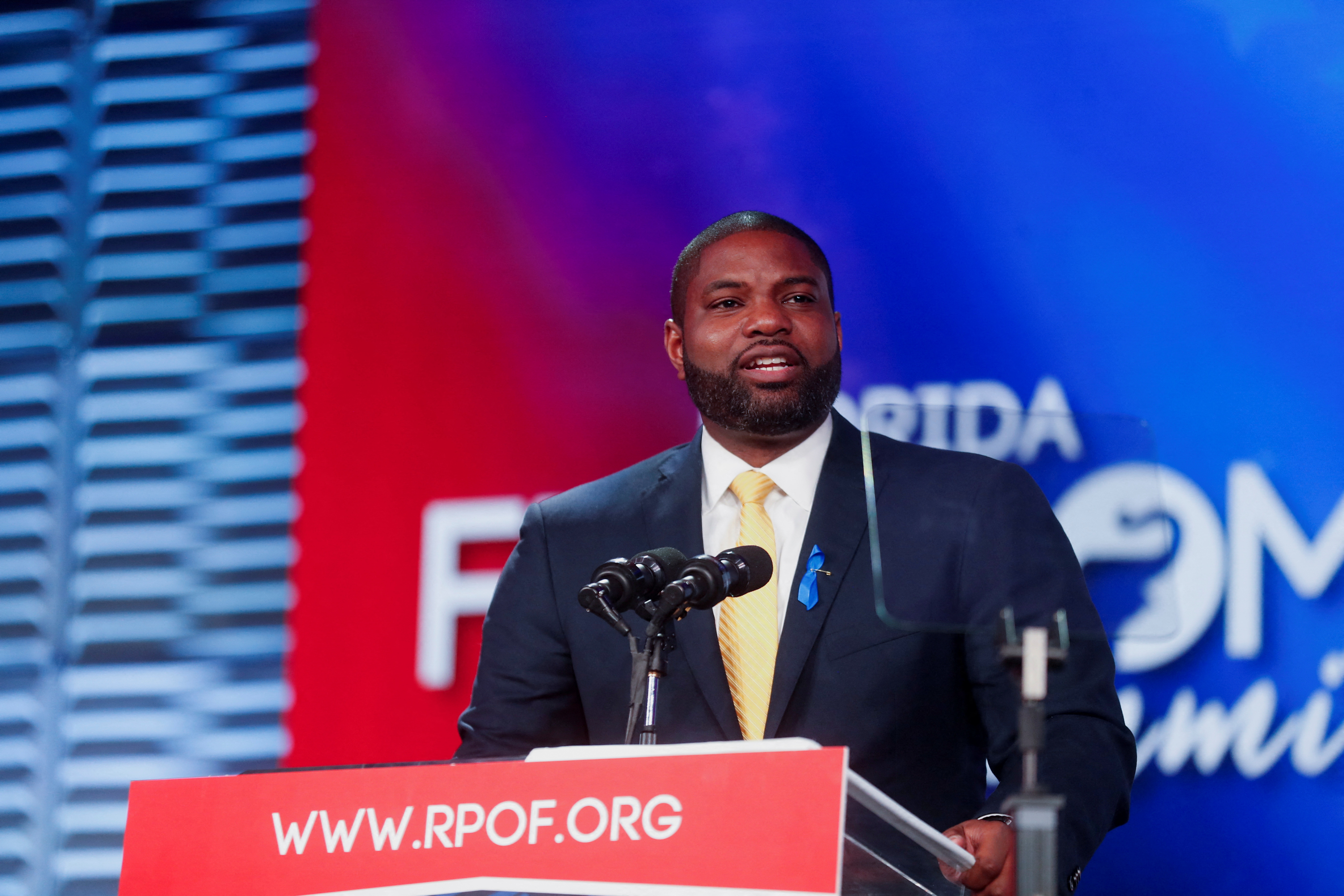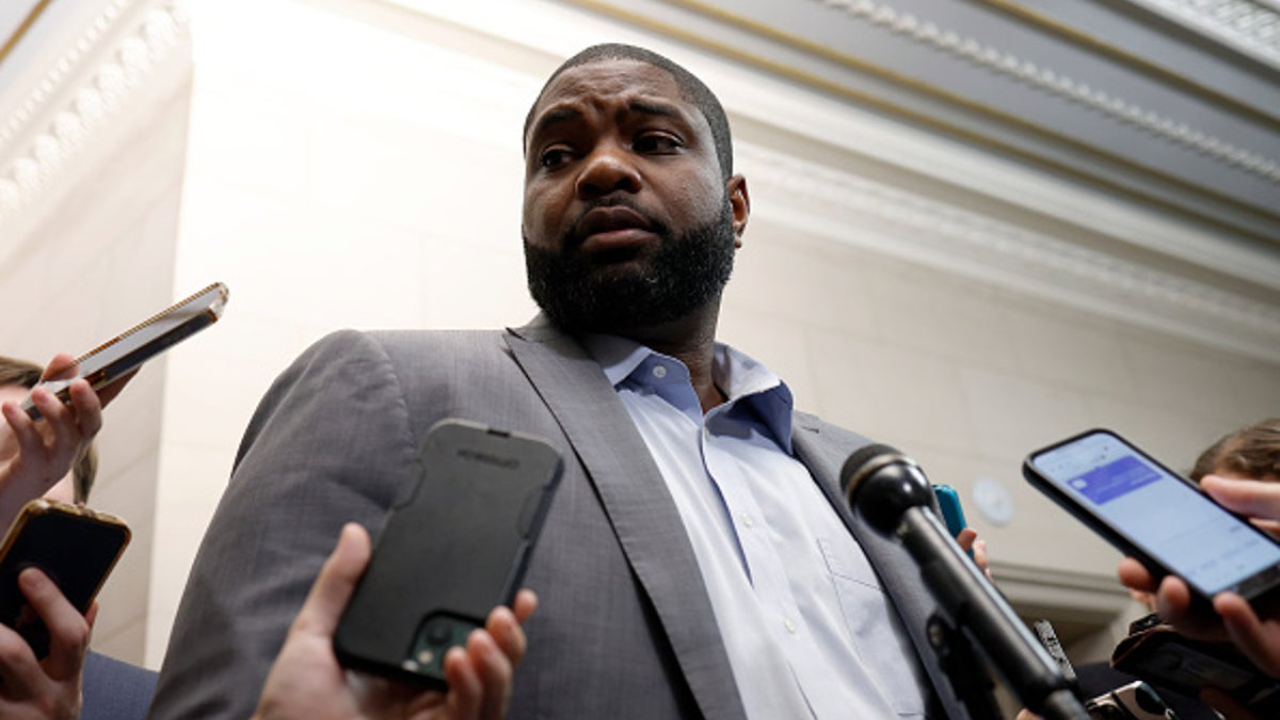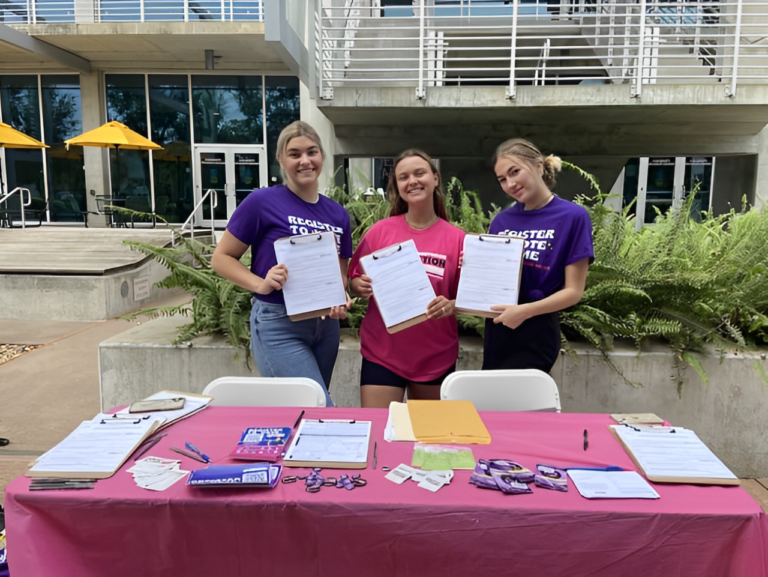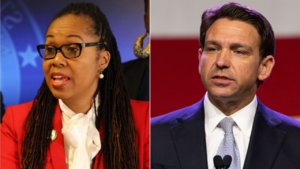Rep. Byron Donalds of Florida defended his controversial comments this week that referenced the Jim Crow era, a period marked by racial violence and segregation, as a time when “the Black family was together.” During an interview with MSNBC’s Joy Reid on “The ReidOut,” Donalds clarified his stance, asserting that his remarks were misunderstood.
“I never said that it was better for Black people in Jim Crow,” Donalds, a Florida Republican, emphasized. His comments at a campaign event for former President Donald Trump in Philadelphia sparked outrage, as he suggested that fewer Black families were fractured during the Jim Crow era.
Donalds clarified, “Don’t try to impose the fact that the marriage rates were better in the — higher, higher, I want to be clear — higher in the Jim Crow era to mean that I think Jim Crow is great. That is a lie. That is gaslighting. I would never say such a thing.”

At the event aimed at Black voter outreach in Pennsylvania, Donalds argued that circumstances have worsened for Black people under Democratic policies, pointing to social programs enacted by President Lyndon Johnson in the 1960s, such as expanded federal food stamps, housing, welfare, and Medicaid for low-income Americans.
“You see, during Jim Crow, the Black family was together. During Jim Crow, more Black people were not just conservative — Black people have always been conservative-minded — but more Black people voted conservatively,” Donalds told the audience.
Reid challenged his perspective, highlighting the restricted rights and blocked voting access for Black people during the Jim Crow era. Despite this, Donalds insisted, “No, I’m not being inaccurate.”
Read More: Florida Governor Ron DeSantis Speaks Out on Trump’s Right to Vote!
Florida Governor DeSantis Directs State Funds to Dock Projects!
Biden Calls Trump a ‘Convicted Felon,’ Questions His Mental State!
The remarks have stirred significant debate, particularly given Donald’s role as a Trump campaign surrogate and potential running mate for the former president. His comments underscore ongoing discussions about historical context and contemporary political strategies within the Black community.







+ There are no comments
Add yours